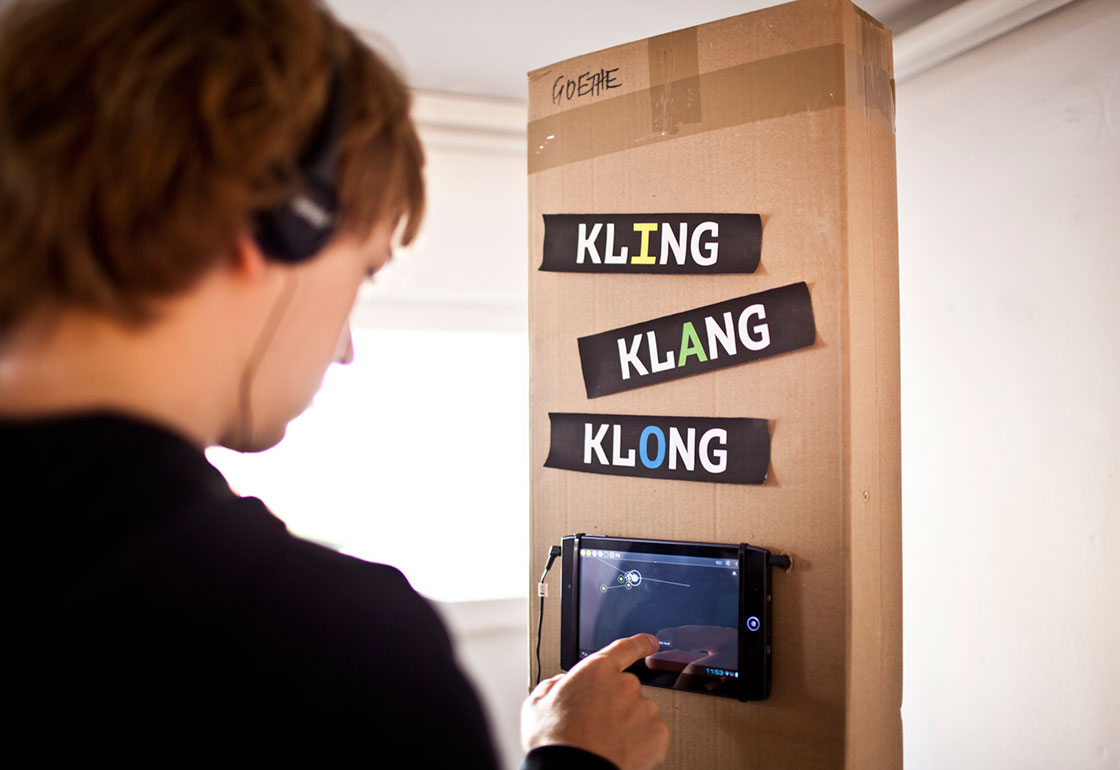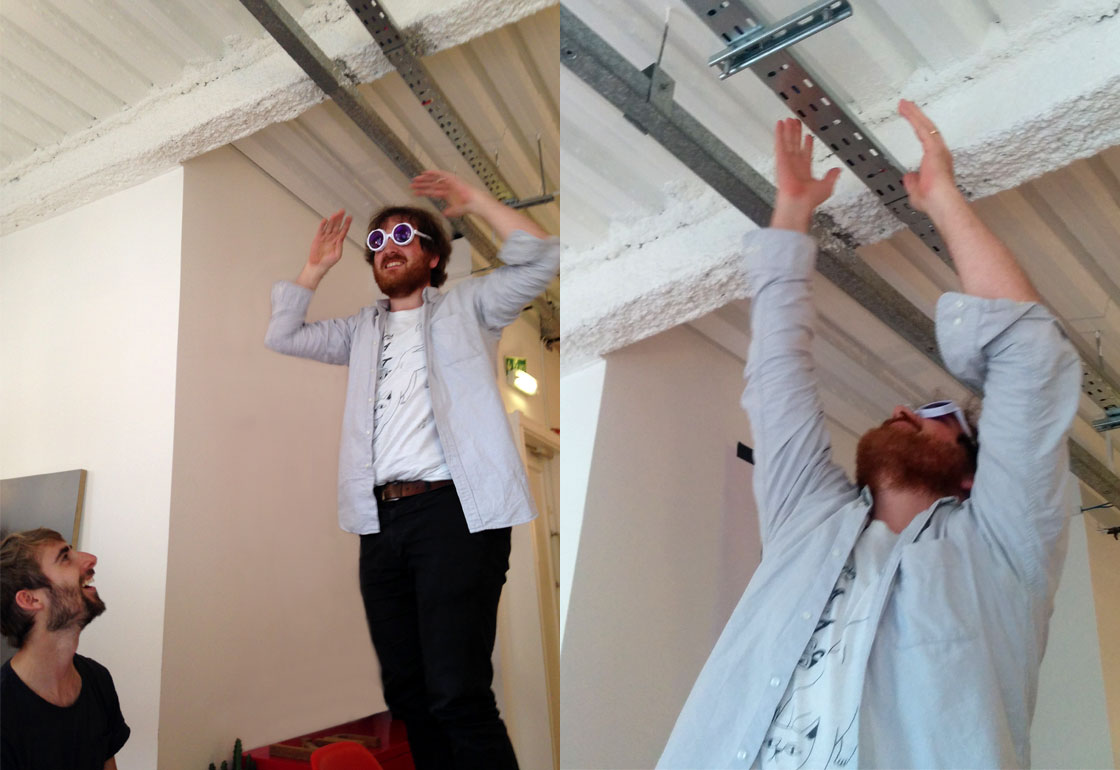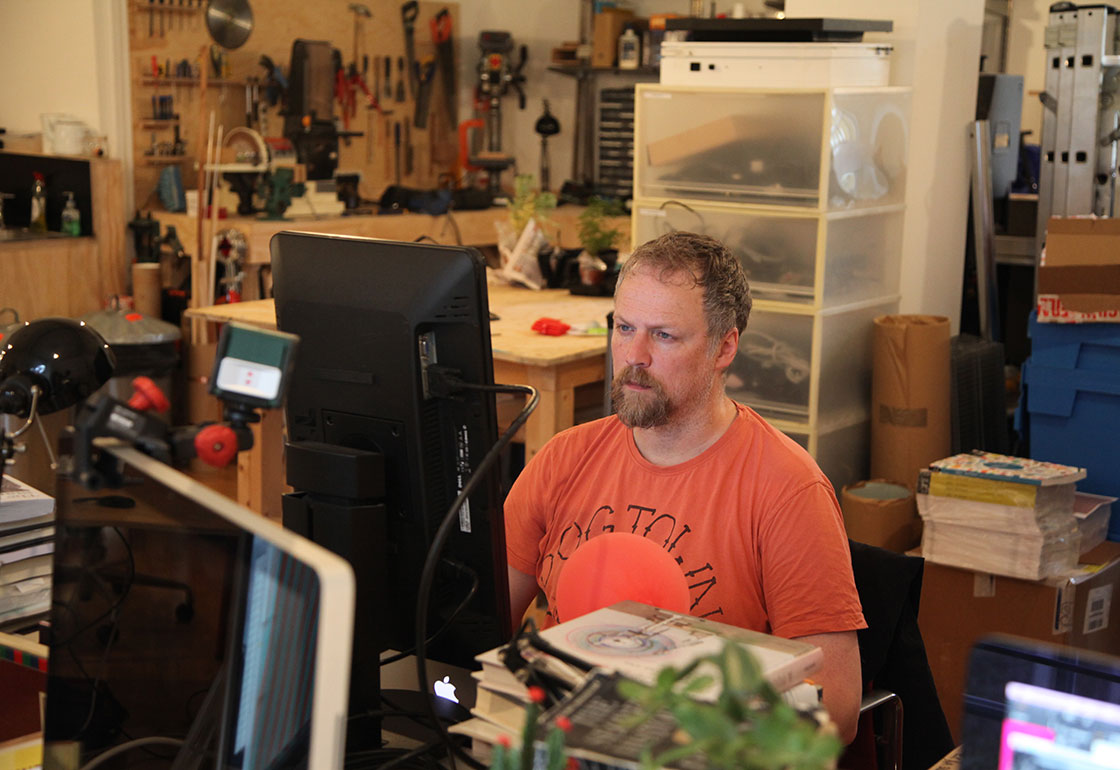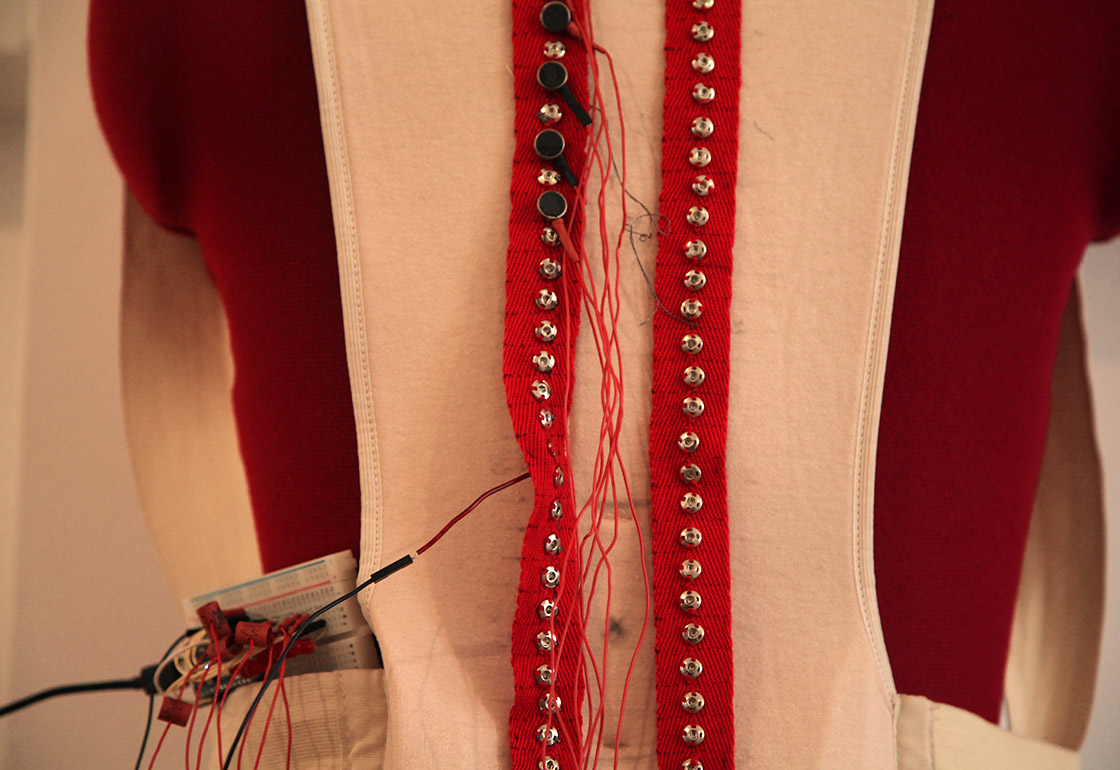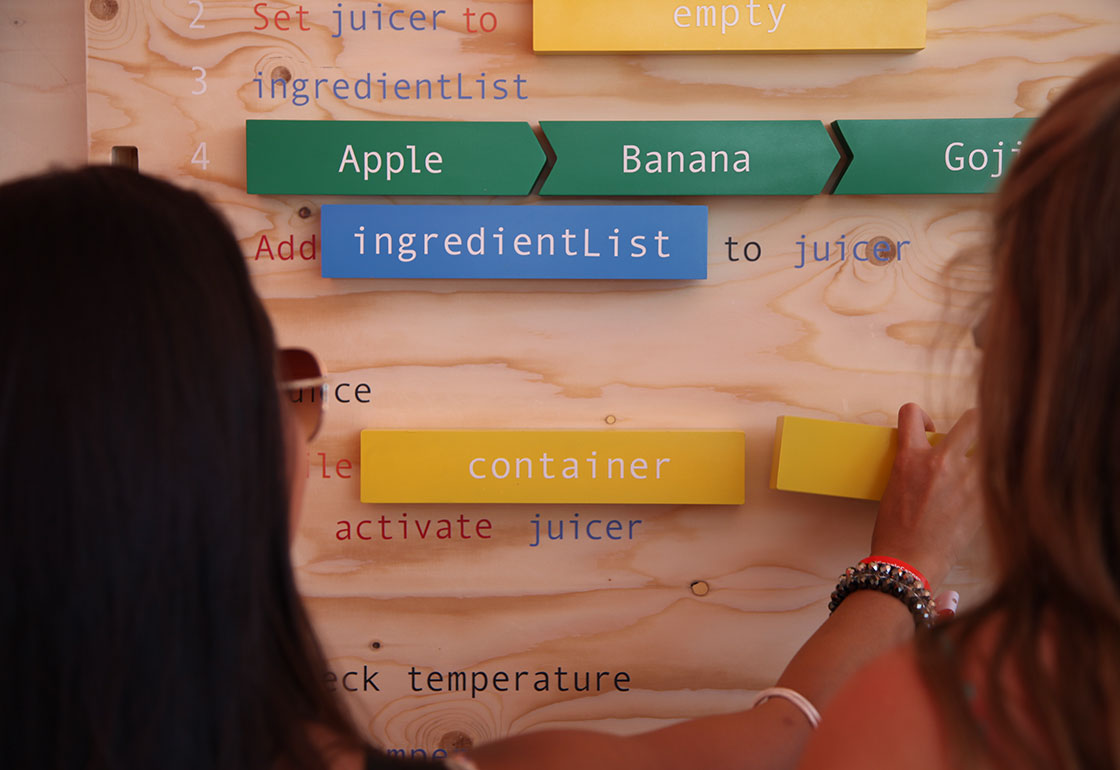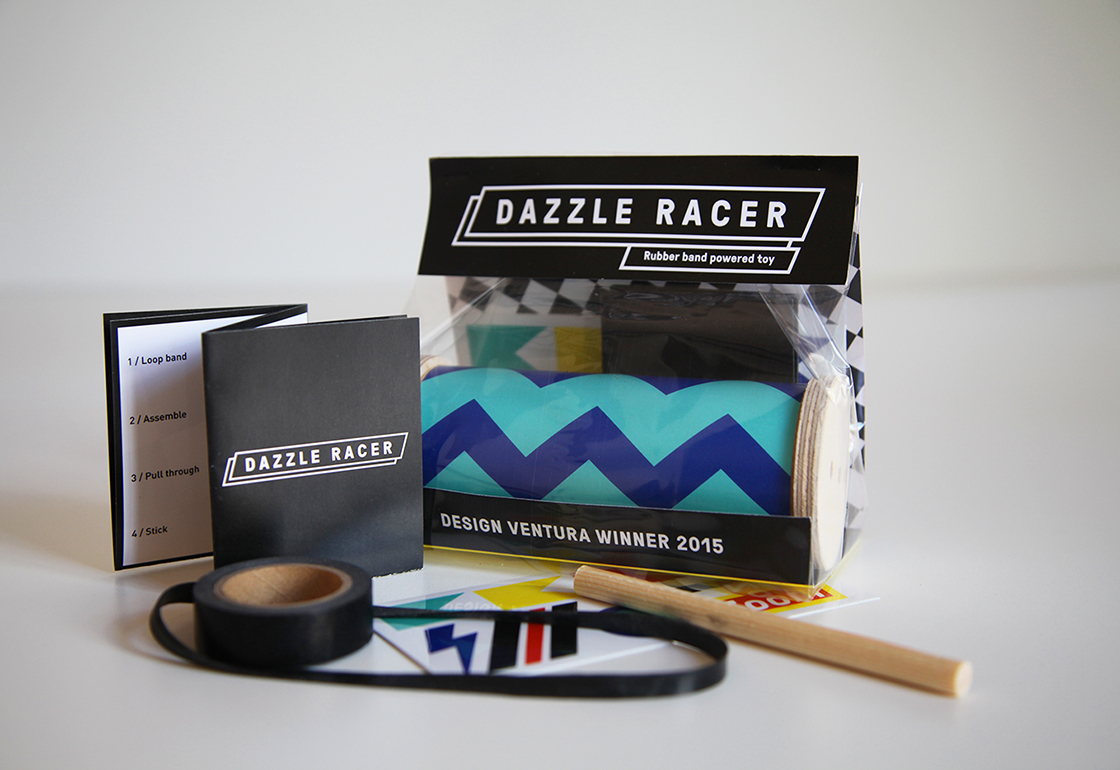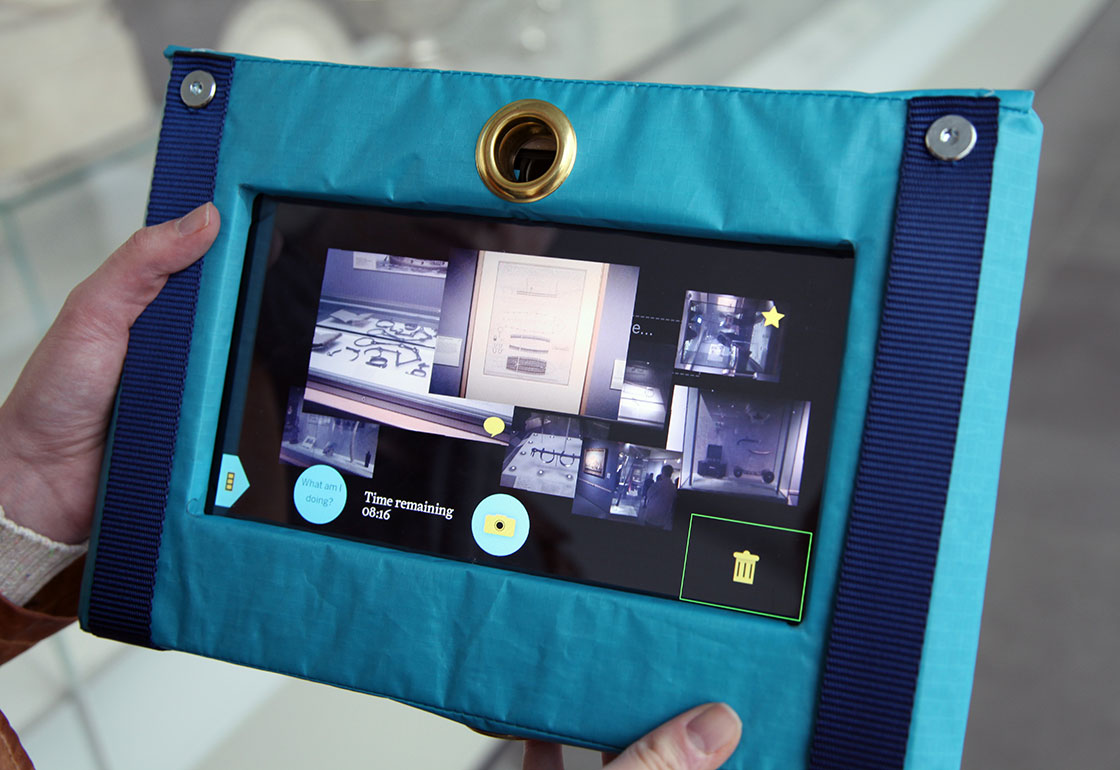Play and Design – CogNovo
Introduction
As an industry partner of the CogNovo programme, Kin has had two PhD candidates on secondment in the studio looking at creativity, cognition, and the brain. Michael Straeubig talks about his project and the creative environment at Kin.
The Project
My PhD is with the School of Art and Media at Plymouth University; it is also part of CogNovo, a multi-disciplinary doctoral program that is running since 2014. The project is about developing the concept of playful systems in mixed reality.
Play is a fascinating, cross-disciplinary topic of research. It has been studied from various academic perspectives like psychology, sociology and anthropology. Currently it is gaining a lot of interest through the field of game studies. Game design, and as I would call it, play design, are ways to explore the design space that enables playful interactions. In my case these interactions take place in mixed reality – that is between humans and virtual entities.
So I am trying to understand both the theoretical and the practical side of play. During my time at Kin I was able to close the gap between these two sides, and to find the connections between what the theory is aiming to describe and what the practice is trying to create. My first project, that has already run through a couple of iterations, is KlingKlangKlong, a locative multiplayer experience. It takes place in the city, where human players and ‘virtuals’ share a common space while communicating primarily through sound. For me this involves coding various mobile web technologies, sound design, and implementing unsupervised learning. Unsupervised learning is a sub-field of artificial intelligence that lets computers autonomously discover patterns in input data without a solution being explicitly programmed or told to the computer.
During my stay at Kin, I could practice and improve my coding skills and share technical knowledge. KlingKlangKlong still needs some improvement – currently I am redesigning the whole AI while I am preparing a second project which also involves Augmented Reality.
To structure the conversations around specific topics and concerns of my projects, I have run a number of workshops with Kin. These focused on specific research and design questions related to Augmented and Mixed Reality, Artificial Intelligence and Machine Learning, and Design and Play. In each case I got valuable perspectives from their experienced professionals, and I was very pleased with the outcomes of those events. Worth mentioning is Kin’s involvement in the educational and academic sector. Their staff is regularly teaching and running workshops at academic institutions, both nationally and internationally. The learnings from my workshops will be contributing directly to key topics of my practice and to my PhD thesis. In addition, we are currently looking at the possibility of writing a joint publication on the topic of design and play.
The secondment has given me an unique opportunity to witness the processes involved in the creation of their commercial projects, through the stages of planning, design, production, and delivery. Being at Kin has provided me with an amazing environment and the experiences I had are valuable in many ways.

